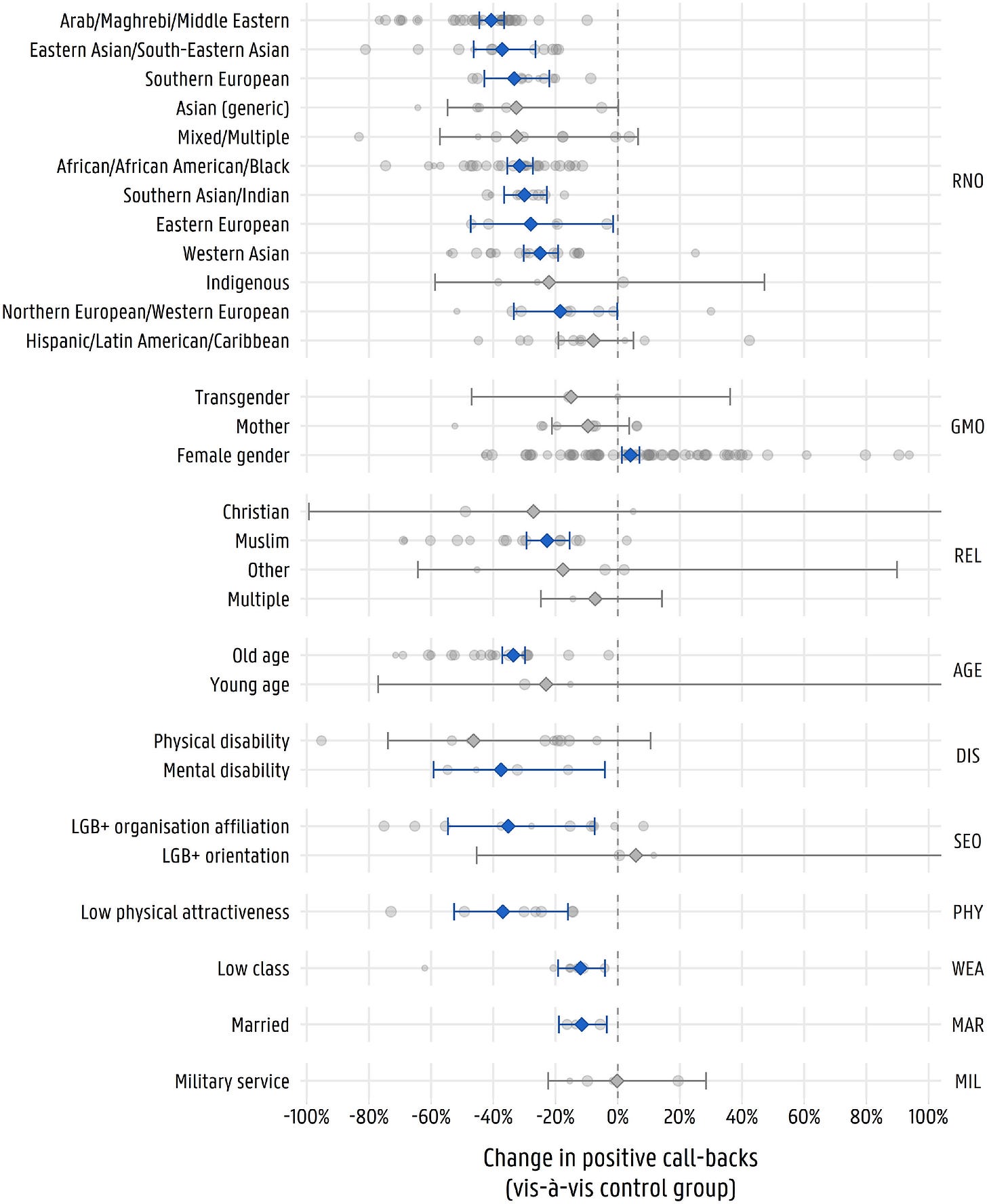Who Gets the Callback?
A meta-analysis of hiring-discrimination studies yields some surprising findings
Correspondence studies are field experiments in which researchers send fake CVs to employers in response to genuine job ads, while varying the race, sex, or other characteristics of the hypothetical applicants. The variable of interest is how many responses each version of the CV gets. It’s a great way to detect real-world bias.
The graph below summarizes the results of a meta-analysis of correspondence studies conducted between 2005 and 2020. Scores below 0 indicate discrimination against the group in question; bars in blue indicate that the finding is statistically significant.
As you can see, the graph contains a mix of surprising and unsurprising findings. In the unsurprising column is the fact that members of ethnic minorities tend to get fewer callbacks than those of ethnic majorities. A somewhat more surprising finding is that discrimination based on disability, older age, and low physical attractiveness is about as intense as discrimination based on race. Meanwhile, discrimination based on religion, class, and marital status is less intense.
Another intriguing finding is that there was a slight bias in favor of women in the hiring process. Although this is probably surprising to many, it’s consistent with other recent meta-analyses of hiring-discrimination studies. (See my discussion of one such meta-analysis here.)
The graph comes from paper called “The state of hiring discrimination: A meta-analysis of (almost) all recent correspondence experiments.” It was authored by Louis Lippens and colleagues. You can read it here or here.
Follow me on Twitter/X.
If you enjoyed this free post and would like access to all Nature-Nurture-Nietzsche-Newsletter content, please consider upgrading to a paid subscription. A paid subscription will get you: (1) full access to all new posts and the archive, (2) full access to my “12 Things Everyone Should Know” posts, Linkfests, and other regular features, and (3) the ability to post comments and interact with the N3 Newsletter community. It’ll also allow me to keep bringing you politics-free psychology. Thank you!
Steve




It seems that (almost) every race/ethnicity/national-origin -- including all subsets of European -- give a negative bias? How can this be? Is the zero-level (baseline) itself somehow skewed? Does this overall fact hint that the underlying studies -- as a group -- just 'can't' be legit? That each one found what it set out to find? Publication bias may be behind it?
It would be interesting to see if this pattern also applies to the final employment decision.
Do you use a particular tool or app to stay updated on research topics that interest you? If so, I’d love to hear your recommendations.
I’ve noticed that many platforms I’ve used, like ResearchGate and Academia, often have a lot of noise due to their lack of effective personalization and filtering options for the newsfeed.